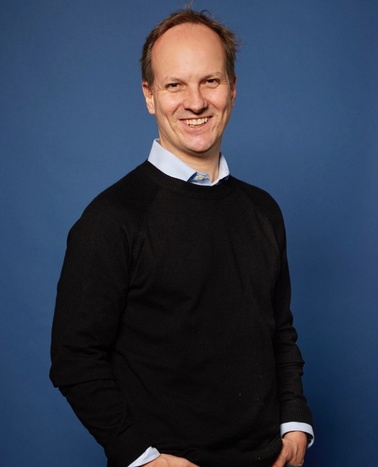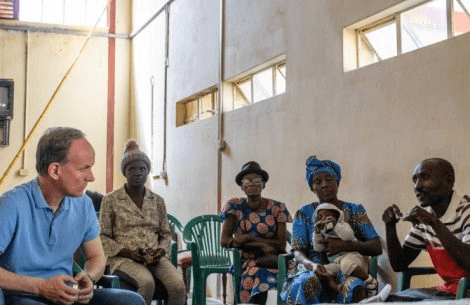
Miguel Ángel Santos
My name is Miguel Ángel Santos. I was born and raised in Venezuela, where I made a career as a corporate officer, until I discovered my passion for development economics and decided to switch tracks. I went back to school, studying at Universitat Pompeu Fabra and Harvard University, before obtaining a Ph.D. in Economics at Universidad de Barcelona. As director of applied research at the Harvard Growth Lab, and director of research at its London School of Economics-based partner Growth Co-Lab since 2021, I help societies rethink their most pressing issues and develop new policies to make the world a better place.
“It’s never too late to pursue your interests and passions—and it’s okay if those interests and passions change every now and then.”
Exploring new avenues, discovering new passions
Miguel Ángel Santos is not afraid to take a risk. He had built a successful executive career in corporate finance and business development in Venezuela, at a time when the country was home to the Latin American headquarters of many multinational business conglomerates. Even so, he was brave enough to turn his changing priorities—and his doubts about Venezuela’s deteriorating economic and institutional situation—into action. Increasingly interested in development economics, Miguel returned to school and obtained master’s degrees in Specialized Economic Analysis (International Finance and Development), and Economics and Finance from Universitat Pompeu Fabra, in 2011 and 2012 respectively. In 2014, he added a Master in Public Administration from the Harvard Kennedy School of Government.
That same year, Miguel joined the Harvard Growth Lab as director of applied research. He spent the next eight years helping governments rethink their growth and development strategies, translating research insights into policies and learning from their implementation. In 2021, he moved to the London School of Economics to open the first overseas operation of the Growth Lab—the Growth Co-Lab at LSE—bringing together the capacities, expertise and reach of two institutions to expand the activities of the Growth Lab globally.
Miguel’s experience at the Growth Lab with applied research and hands-on policy design and implementation reconnected him with the spirit of academia. Along the way, it also helped him discover that his interest lies in understanding the potential of places and the constraints that prevent places from realizing that potential—and then designing and implementing policies to overcome those constraints. More than that, it ignited a passion for reflecting on that experience, writing about it—and teaching.
In 2018 he was given the opportunity to co-teach a class on economic growth and development with Ricardo Hausmann – founder of the Harvard’s Growth Lab – at the Harvard Kennedy School. The course feeds on the Growth Lab’s experience and insights of two decades of applied research and getting things done in development contexts. Since the Spring of 2020, Miguel has been teaching a similar course at the University of Chicago, and in 2022 he took the class to the School of Public Policy at LSE, where it has become one of the most popular courses among students interested in economic growth and international development. At IE School of Global and Public Affairs, Miguel teaches a capstone course that enables students of the Master in Applied Economics to deploy a variety of analytical frameworks to process and interpret data, mapping place-specific paths for productivity improvement and to spark structural transformation.

Miguel has often found inspiration in the biographies of economists who haven’t necessarily followed the profession’s mainstream path, but have instead come from different walks of life and made their way into the discipline. That’s no doubt why he recommends Jeremy Adelman’s massive and beautifully written book about the life, adventures and contributions of Albert Hirschman (“Worldly Philosopher: The Odyssey of Albert Hirschman”) or Amartya Sen’s recent autobiography (“Home in the World”) to his students.
Possibly the lesson Miguel treasures most is that it’s important never to lose the ability to rethink your priorities, or to pursue your interests and passions—and it’s okay if they change every now and then. If there’s one thing he wants his students to understand, it’s that there is a whole other world beyond their predefined career paths. There are entirely new avenues out there that can be discovered and explored. We look forward to our students discovering them on the Master in Applied Economics.
“It’s never too late to pursue your interests and passions—and it’s okay if those interests and passions change every now and then.”
“It’s never too late to pursue your interests and passions—and it’s okay if those interests and passions change every now and then.”